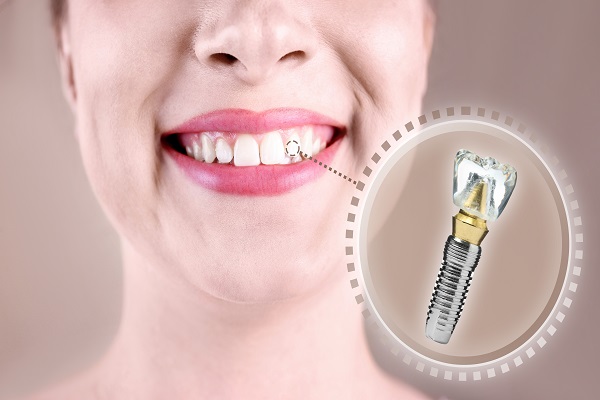Ask an Implant Dentist: What’s the Difference Between Natural Teeth and Implants?

If you are looking to get an implant restoration from an implant dentist, one of the questions you might have is how the option differs from your natural teeth. Dental implants have been touted as the most reliable and natural-looking option available for replacing missing teeth. The restoration comes with an artificial tooth root that supports a lifelike dental prosthesis, which is identical to the natural tooth. But how is it different?
The difference between natural teeth and implants
The primary distinguishing factor between implants and natural teeth – aside from natural teeth being, well, natural – is the mode of attachment to the jawbone. Implants essentially integrate with the bone. This is from the biocompatibility feature of titanium, the metal used to create implants. this integration is crucial for its functionality.
In contrast, natural teeth do not integrate with the bone supporting it. Rather, the attachment is via the gum ligaments, consisting of tiny fibers that surround the tooth completely. Implants also have the gingival tissue at their crest, but the tiny fibers are parallel to the length of the implants and do not fuse with the implant's surface. The bond of the connective tissue with the implants is not as strong as that of the natural teeth.
Potential for decay
Another difference is that natural teeth are susceptible to cavities while implant-based restorations are not. However, this is not an excuse to slack on oral hygiene. Oral hygiene is still important to ensure oral health; else, bacterial infection may set in, which may cause gum disease, bone loss and tooth loss, or for implants, failure.
Inflammatory response
The natural teeth have fibers to act as a physical shield against bacterial invasion due to the way they are aligned against the periodontal ligament. This restricts gum disease progression. The physical shield is absent in dental implants since the parallel alignment of the fibers gives room for the downward progression of bacteria. This can increase the risk of inflammation, which contributes to peri-implantitis, a bacterial infection.
The major obstacle to a fully-integrated dental implant is peri-implantitis, which usually develops when bacterial plaque accumulates on the implant-supported restoration. The infection can cause bone loss, and consequently, detachment of the implants from the jawbone. This situation is what causes implant failure. Patients can prevent this infection by maintaining proper oral hygiene at home and visiting the implant dentist regularly.
Movement and adjustments
The periodontal ligament around the natural teeth functions like a suspension system, absorbing chewing forces and dissipating them into the surrounding jawbone and continuously enabling micromovements, depending on occlusal or muscular forces. Implants do not move at all to dissipate those occlusal loads in the jawbone since they have no periodontal ligament.
In conclusion
Dental implants remain the most innovative tooth replacement option, with a high success rate. In terms of appearance, implants look identical to natural teeth and are hard to tell apart. If you want to learn more, feel free to book an appointment with the implant dentist for a consultation.
Request an appointment here: https://mgdental.com or call MG Dental at (718) 416-6444 for an appointment in our Brooklyn office.
Check out what others are saying about our dental services on Yelp: Implant Dentist in Brooklyn, NY.
Recent Posts
An Experienced Implant Dentist has the answers to all of your questions if you are currently considering dental implants. These oral restorations have emerged as a popular way to replace missing teeth thanks to their ability to preserve jawbone tissue and their low maintenance requirements.Here are some of the more popular questions people who are…
As a provider of implant dentistry, we provide patients throughout the area with the ability to regain the appearance and functionality of their smile. Losing teeth can be ridiculously challenging. Most people never realize how important their teeth are to daily life until they lose one or several. All of a sudden, smiling and speaking…
To find a dentist both parents and children feel comfortable with can be a challenge, but it is not impossible. It may seem hard to think of a trip to the dentist as a family affair, but everyone should be on the same page when it comes to oral health. Consistency in oral health cleanings…
A cosmetic dentist often hears concerns about whitening discomfort and can explain why sensitivity sometimes increases during treatment. Whitening products lift stains by allowing active ingredients to move through enamel, which can temporarily irritate the tooth's inner structures. Understanding what causes sensitivity and how to reduce it helps patients pursue a brighter smile more comfortably.Whitening…


